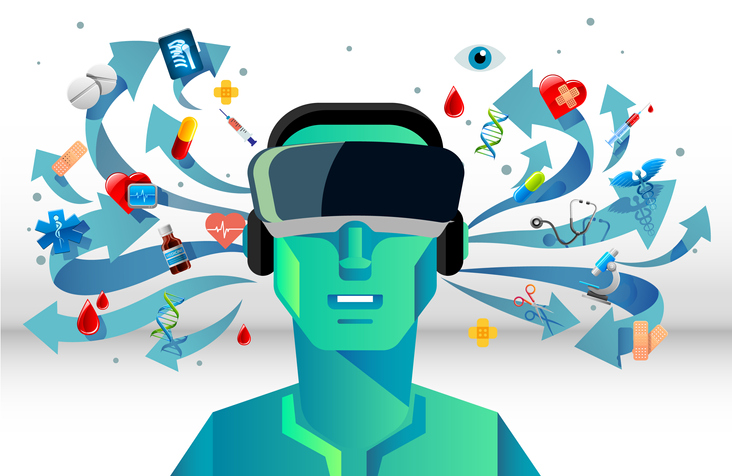
The Food and Drug Administration (FDA) cleared a VR-based platform intended to treat chronic lower back pain. On Tuesday, it cleared AppliedVR’s EaseVRx platform, to help reduce pain in adults ages 18 and older.
It would be AppliedVR’s first FDA cleared product since it was founded in 2015. The Los Angeles-based company started by bringing VR headsets to patients in hospitals, to provide a welcome respite from the noise and stress of hospitals. But then it turned its focus to building tools people could use at home.
The eight-week treatment program includes a total of 56 short, daily VR sessions. Unlike some other virtual reality solutions on the market, AppliedVR’s first product is less focused on physical therapy exercises, and more so on relaxation techniques and cognitive behavioral therapy. For example, one of its sessions guides patients through deep breathing exercises in a 3-D nature scene.
EaseVRx was cleared through the FDA’s de novo pathway, which is for low- to moderate-risk devices that are different from anything that currently exists on the market. The FDA made its decision after reviewing results of a 179-person randomized, double-blind study, which showed that two-thirds of people who used EaseVRx reported a greater than 30% pain reduction, compared to 41% of participants who used a sham VR program. The results were published in JMIR earlier this year.
That said, while the trial showed good adherence (more than 90% of people stuck with the program), it didn’t do as good of a job recruiting a diverse group of participants, with the majority being white, female and college educated.
One of the company’s next hurdles will be to strike agreements with payers to cover its device. AppliedVR recently raised $36 million, part of which it plans to put toward additional testing to show the device’s clinical efficacy and cost effectiveness. In a press release, the company said it plans to finish health economics and outcomes studies with commercial payers, and is also collaborating with Geisinger and Cleveland Clinic on two separate studies that test VR as an opioid-sparing tool.
Photo credit: exdez, Getty Images















